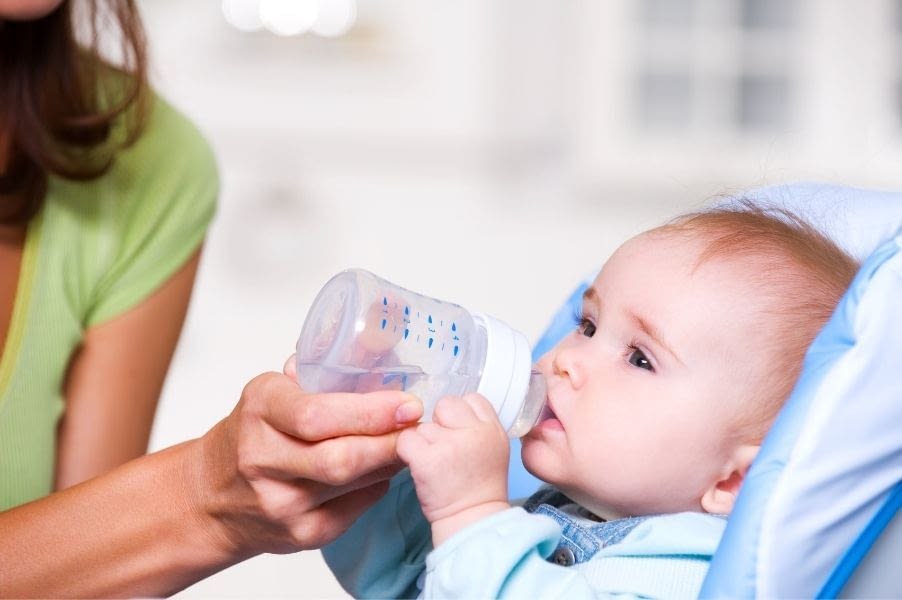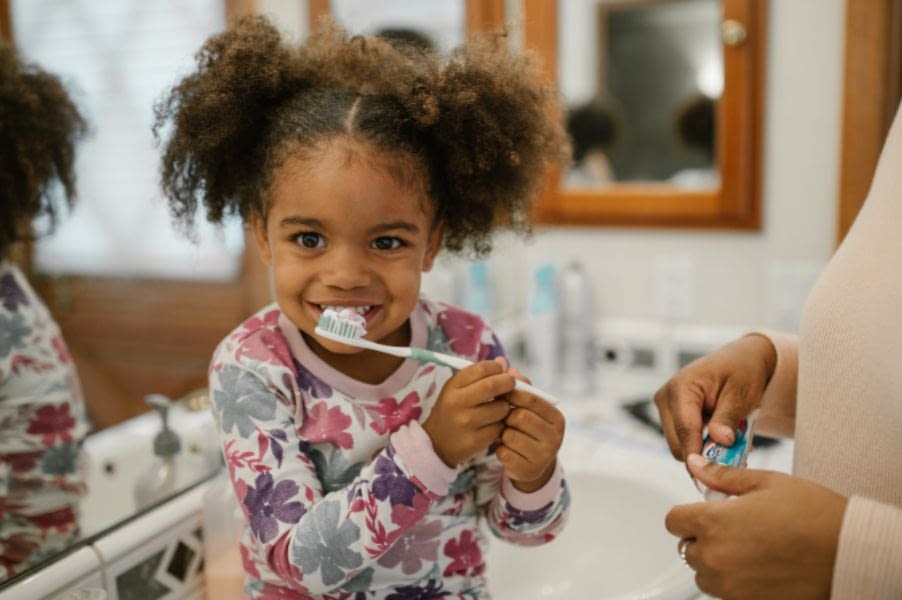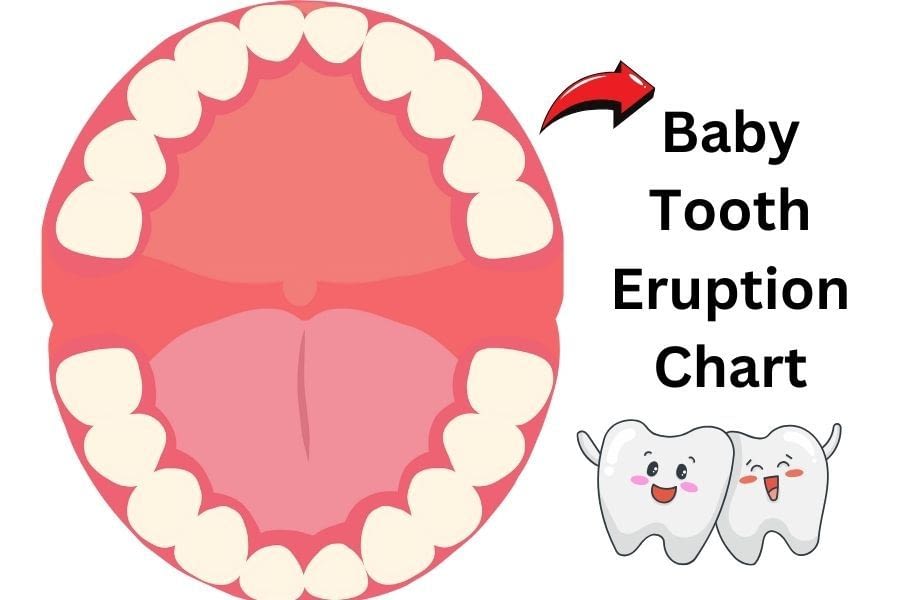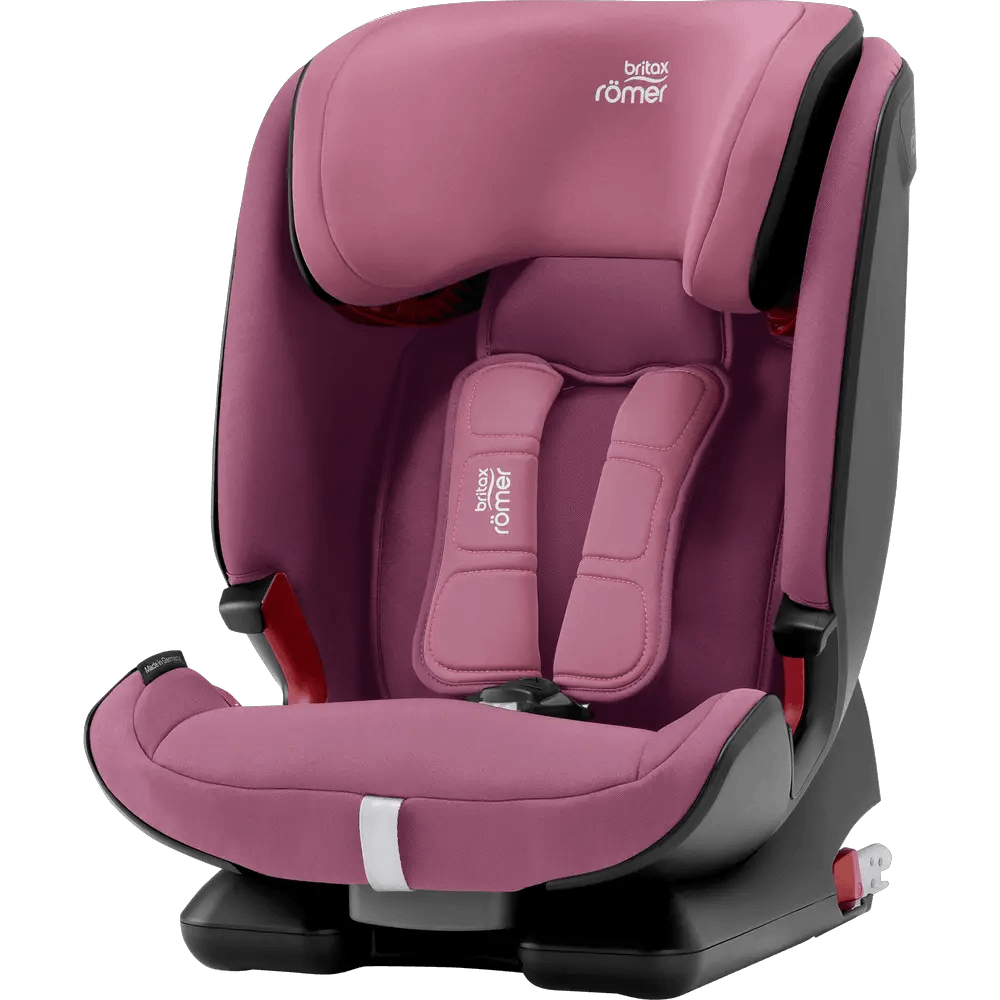As a new parent, you’re bound to make a few mistakes along the way, including trying to give your newborn water. If this has happened to you, don’t worry! You’re not alone; many other parents have done the same thing, trying to soothe their baby’s cries.
In this blog post, I’ll cover everything from why babies shouldn’t be drinking any liquid before six months old and how it can be dangerous for them, as well as what steps I can take when I accidentally gave my newborn water. Read on for tips and guidance so that you are better prepared if your infant accidentally consumes fluids before they should!
Best Non Toxic Baby Bottles You can use for Newborn
|
Nanobebe Flexy Silicone Baby Bottles |
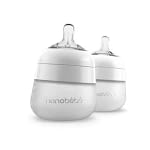 |
Buy On Amazon |
|
Tommee Tippee Closer to Nature Soft Feel Silicone Baby Bottles |
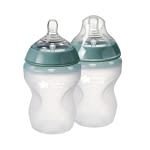 |
Buy On Amazon |
|
Comotomo Baby Bottle |
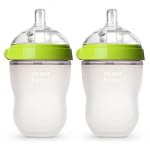 |
Buy On Amazon |
|
Brown’s Natural Flow Anti-Colic |
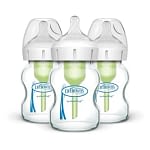 |
Buy On Amazon |
Feeding Guidelines: Can infants have water?
Adhering to pediatrician-recommended feeding guidelines is crucial to your newborn’s development and well-being. As parents, we always want to provide the best care for our newborns. But with so much information, knowing what is safe and what isn’t can be challenging.
When it comes to giving water to your newborn, here’s what you need to know:
- Babies under six months should be exclusively breastfed or given formula, as these provide all the necessary nutrients and hydration.
- Conversely, water can fill an infant’s small stomach, leaving less room for essential nutrient-rich milk and potentially leading to malnutrition.
- Moreover, excessive water consumption can disturb a baby’s electrolyte balance, leading to serious health issues such as water intoxication.
Therefore, following your pediatrician’s feeding advice is paramount in safeguarding your newborn’s health and ensuring their proper growth and development.
Why can’t babies have water but can have formula?
Breast milk or formula is designed to provide the perfect balance of nutrients a newborn requires. These nutrients are vital for brain development, growth, and a healthy immune system. Understanding that water composition does not meet these dietary needs is essential.
Formula milk provides them with the right balance of proteins, fats, carbohydrates, vitamins, and minerals. Breast milk, often deemed the ‘perfect food’ for babies, is rich in antibodies that help protect infants against common childhood illnesses such as diarrhea and pneumonia. It also promotes cognitive development and contributes to your baby’s healthy weight gain.
On the other hand, formula feeding is a good alternative for mothers who are unable to breastfeed due to medical reasons or personal choices. Formulas are carefully designed to mimic the nutritional composition of breast milk and provide a balanced diet for babies.
It is crucial to remember that breastfeeding and formula feeding offer complete nutrition to your baby, including hydration. Therefore, there is no requirement for extra water until the introduction of solid foods at approximately 6 months of age.
Understanding the Digestive System of Newborns
The digestive system of newborns is not fully developed and, hence, can only process breast milk or formula during the initial months. Adding water to their diet can interfere with their body’s ability to absorb the nutrients from milk. This is because water fills up their tiny tummies and reduces the milk they usually drink, leading to malnutrition and slower growth.
I remember doing this when my little one was around 7 weeks old. I accidentally gave baby water instead of formula in the middle of the night, and he ended up drinking an ounce of it. The next day, he had a good poop!
The health visitor also suggested giving him a small amount of water throughout the day (less than an ounce in total) because he had severe constipation as a newborn and would have massive blowouts. It turns out he was later diagnosed with CMPA.
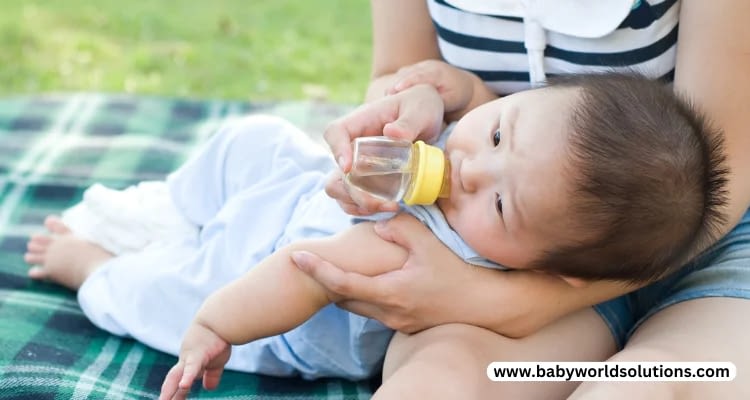
The Dangers of Water Intoxication (When Newborn Accidentally Swallowed Bath Water)
Water intoxication is a severe risk to newborns and can be potentially life-threatening. This happens when a baby drinks too much water, diluting the concentration of electrolytes in their body, particularly sodium. Sodium is vital in nerve and muscle function and helps maintain fluid balance.
When sodium levels become too low, it can lead to irritability, drowsiness, and other mental changes. In severe cases, low sodium levels can lead to seizures, coma, and even death.
Timeline and Symptoms of Water Intoxication in Babies
Water intoxication in babies can develop rapidly, often within a few hours to a day after consuming excess water. It’s important to note that the timeline can vary based on the size of the baby and the amount of water consumed.
The symptoms of water intoxication can be subtle at first, but they progressively worsen as the baby’s sodium levels continue to drop. Early signs may include fussiness, irritability, and drowsiness. As the condition advances, you may notice more severe symptoms such as:
- Low body temperature (below 97°F / 36°C): Excess water dilutes the baby’s blood, and heat is lost more quickly, leading to hypothermia.
- Swelling or puffiness in the face: This is due to the excess water in the baby’s body, causing cells to swell.
- Unusually wet or frequent diapers could indicate the baby’s body attempting to get rid of the excess water.
- Changes in color or appearance of the baby’s skin: The skin may appear paler and cooler than usual.
- Changes in behavior: The baby may seem overly tired, unresponsive, or unusually irritable.
Therefore, if you suspect your baby might be showing signs of water intoxication, seek immediate medical attention. Preventing water intoxication is crucial; awareness about its dangers can help keep your baby safe.
The Risk of Malnutrition (When you accidentally put too much water in formula)
When babies consume water, it takes up valuable space in their tiny tummies that should be reserved for nutrient-rich breast milk or formula. This situation could lead to malnutrition since their primary source of nutrients is displaced by water.
New parents must know that proper feeding practices are essential in their child’s early months. I accidentally gave my 3 month old baby water, which should never be used as a substitute for milk, even during hot weather or constipation episodes. Always consult your pediatrician before introducing new foods or liquids to your baby’s diet.
Overburdened Kidneys
Newborns have immature kidneys that cannot filter large volumes of water efficiently. This can lead to overhydration, which may overload their kidneys and could result in a dangerous drop in body temperature or hyponatremia.
Hence, it’s crucial to stick to breast milk or formula for at least 6 months, as it provides all the necessary nutrients and hydration your baby needs.
Risk of Infection
Unless the water is sterilized, there is also a risk of infecting your baby with harmful bacteria that their immune system is not yet ready to fight off. If your 2 week old swallowed bath water, it can lead to illness, which is particularly dangerous in the first six months of life when the immune system is still developing.
You can ensure your child’s health and well-being for years with proper care and guidance. So remember, while a sip of water may seem harmless, it’s best to wait until your child is six months old before introducing any liquids other than breast milk or formula into their diet.
Your little one will thank you for it in the long run. Trust your instincts as a parent, and enjoy this precious time with your little one! And remember, mistakes happen, but they can also lead to learning valuable lessons along the way.
I Accidentally Gave My Newborn Water: What Should I Do?
Parenting is full of surprises, and one mistake that can easily be overlooked is giving newborns water. However, If your 2 week old swallowed bath water, then follow these tips:
Stay Calm and Observe
If you’ve accidentally given your newborn water, the first thing to do is to stay calm. Panicking will not improve the situation. Instead, observe your baby for any unusual signs or symptoms, such as changes in behavior, digestive issues, or lethargy.
Contact a Healthcare Professional
If your baby shows any signs that concern you, do not hesitate to contact your healthcare provider or local pediatrician. They can provide the necessary guidance and reassurances based on your baby’s circumstances.
Follow Professional Advice
Once you have consulted with a healthcare professional, it’s crucial to follow their advice to ensure the health and safety of your baby. This may include monitoring your baby’s behavior, adjusting your feeding practices, or sometimes seeking immediate medical attention.
Learn from the Experience
Once the situation is under control, it’s essential to remember the experience and learn from it. Understand why babies under six months should not be given water and strive to adhere to this guideline in the future.
Monitor Your Baby: Look For Signs and Symptoms of Water Intoxication
Even if your baby appears fine after accidentally ingesting water, monitoring them closely for any potential signs and symptoms of water intoxication is crucial. These may include:
- Lethargy or unusual sleepiness
- Irritability or fussiness
- Swelling in the face or extremities
- Changes in behavior, such as reduced feeding
Drive Up to the Nearest Clinic
Don’t hesitate to seek immediate medical attention if you notice any of these signs or symptoms other than restful sleep. Time is of the essence when it comes to water intoxication, and prompt treatment can prevent serious complications.
Continue With Breast Milk or Formula
Ensure to stick to breast milk or formula for your baby’s hydration and nutritional needs until they are six months old unless your pediatrician advises otherwise. This will help to prevent similar incidents from happening in the future.
Remember, mistakes are a natural part of the parenting process. Learning from them is what makes you a better parent. Please don’t beat yourself up over it; use the opportunity to learn and grow.

Preventing Accidental Water Ingestion: Tips for Parents
Preventing accidental water ingestion in newborns primarily revolves around following correct feeding practices and maintaining a vigilant eye on what your baby consumes. Here are some valuable tips for parents to be aware of how to treat water intoxication in babies:
- Stick to Breast Milk or Formula: Your baby’s diet should exclusively consist of breast milk or formula for the first six months. Avoid giving water, juices, or other liquids unless a healthcare professional recommends it.
- Double-check Bottles: Always double-check the contents of the bottles before feeding your baby. This can prevent any accidental mix-ups between water and breast milk or formula.
- Educate Family Members and Caregivers: Make sure everyone who cares for your baby understands the no-water rule. This includes grandparents, babysitters, and other caregivers.
- Don’t Use Water to Soothe: Some parents may be tempted to use water to soothe a fussy baby or during teething. Instead, use a pacifier, teething toys, or your clean finger to comfort them.
- Correct Bottle Preparation: Always follow the manufacturer’s instructions when preparing the formula. Never dilute the formula with extra water.
- Consult Before Making Changes: If you’re considering introducing new liquids into your baby’s diet, always consult your pediatrician first.
When Your Baby Can Have Water?
Introducing water into your baby’s diet should be done carefully and only when ready. It is generally recommended to wait until your baby is about six months old – around the same time when you can start introducing solid foods.
At this stage, their kidneys are mature enough to process water properly, and their diet is beginning to include other sources of hydration.
However, even at this age, water should not replace breast milk or formula, which are still the primary sources of nutrition. Initially, the amount of water should be minimal – a maximum of a few ounces spread throughout the day, mainly to help them get used to sipping from a cup. The amount of water can gradually increase as the baby ages and starts consuming more solid foods.
Alternative Methods to Soothe Hiccups in Newborns
Newborns often experience hiccups, which can be both alarming for parents and uncomfortable for the baby. However, hiccups are usually harmless and part of the baby’s development. While they typically go away on their own, there are several methods you can use to help soothe your baby’s hiccups:
- Feeding: Sometimes, feeding your baby can help stop the hiccups. This is because the sucking motion can help relax the diaphragm, thereby preventing the hiccups. However, avoid overfeeding as it can lead to discomfort and cause hiccups.
- Burping: Burping your baby can help eliminate excess gas that might be causing the hiccups. It’s recommended to burp your baby during and after each feeding.
- Pacifier: Using a pacifier can have a similar effect to feeding, as the sucking motion may help relax the diaphragm.
- Gripe Water: Some parents find that gripe water (a mixture of water and herbs) can help soothe hiccups. However, it’s essential to consult your pediatrician before giving your baby anything new.
- Change of Position: Changing your baby’s position can help stop hiccups. Try holding your baby upright for a few minutes.
Tips for Newborn care
Caring for a newborn is an incredible journey filled with joy, challenges, and priceless learning experiences. When my first child was born, I was overwhelmed with the responsibility of this new tiny life. The first few nights were difficult, with the baby waking up every couple of hours, but gradually, we adjusted to a routine.
- One of the things that surprised me was the importance of burping. In the early days, my baby would cry inexplicably after feedings. After a visit to the pediatrician, I learned the importance of burping to alleviate discomfort caused by swallowed air.
- Skin-to-skin contact was another significant aspect of our newborn care routine. The closeness comforted my baby, making them feel secure and loved.
As time passed, I found immense joy in understanding their cues, from deciphering the different types of cries to learning their preferred soothing methods.
But perhaps the most memorable experience was watching my baby’s first smile. It filled me with an indescribable sense of love and wonder, reminding me that all the challenges and sleepless nights were worth it.
Conclusion: I accidentally gave my newborn water
Accidents happen, especially with newborns still adjusting to their new environment. However, taking precautions can minimize the chances of accidental water ingestion. Here are a few tips to keep in mind:
- Always follow feeding guidelines recommended by your healthcare provider.
- Avoid giving any liquids other than breast milk or formula before six months of age.
- Be mindful of the amount of water used in preparing the formula, and measure it accurately.
- Stay vigilant and supervise anyone caring for your baby to ensure they give water with your knowledge.
Following these tips and staying informed can help keep your newborn safe and healthy during their early months. Remember, breast milk or formula provides all the necessary hydration and nutrients for your little one, so let’s leave the water drinking for when they are old enough to handle it safely.
Parents Also Ask
Can you give newborn water for hiccups?
While giving water to a hiccuping newborn may seem logical, doing so can be harmful. Newborns do not require water, and consuming it could lead to water intoxication. For hiccups, stick to safe methods such as burping, feeding, or using a pacifier.
How quickly does water intoxication happen in babies?
Water intoxication can occur in babies rapidly, the exact time depending on the amount of water consumed and the baby’s size. Acute symptoms may emerge within a few hours. Constantly monitor your baby closely and consult a doctor if you suspect water intoxication.
1 Visit today

